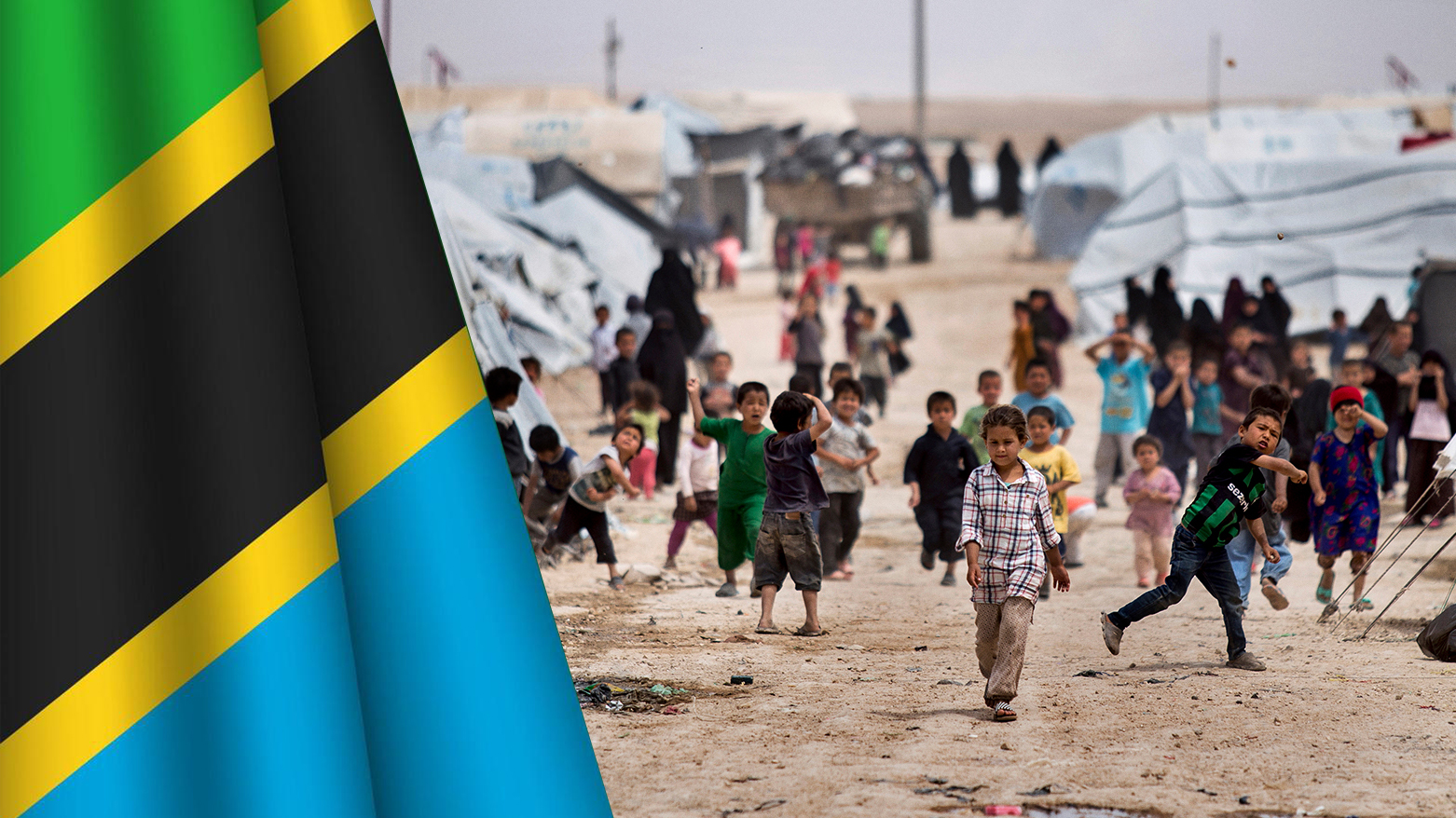Washington Welcomes Tanzania’s Move to Bring Home Citizens from Roj Camp
According to a statement from the U.S. Department of State, the repatriation took place on Aug. 11 with U.S. support. It included one Tanzanian woman and three children.

ERBIL (Kurdistan24) — The United States on Wednesday welcomed Tanzania’s repatriation of four of its citizens from northeast Syria’s Roj displaced persons camp, underscoring international calls for nations to bring home their nationals linked to ISIS.
According to a statement from the U.S. Department of State, the repatriation took place on Aug. 11 with U.S. support. It included one Tanzanian woman and three children.
“Approximately 14,500 individuals from more than 70 countries outside Syria remain in the al-Hol and Roj camps, most of whom are children under the age of 12,” the statement noted, emphasizing that the “only durable solution” is for countries to repatriate, rehabilitate, and reintegrate their citizens while ensuring accountability where necessary.
The State Department also thanked the Syrian Democratic Forces (SDF) "for their assistance facilitating this repatriation and their commitment to ensure the enduring defeat of ISIS."
Al-Hol and Roj Camps
The al-Hol and Roj camps in northeast Syria are among the most sensitive humanitarian and security flashpoints in the Middle East. Both camps are administered by the Kurdish-led Autonomous Administration of North and East Syria, with security provided by the SDF.
Al-Hol, located in Hasakah province, is the larger of the two, housing around 50,000 people, the majority of whom are women and children linked to ISIS fighters killed or detained after the group’s territorial defeat in 2019. Among them are tens of thousands of Iraqis and Syrians, alongside approximately 8,000 foreign nationals from other countries. The camp has been plagued by poor living conditions, rampant disease, radicalization efforts by hardline ISIS women, and repeated outbreaks of violence, making it a continuing security threat.
The Roj camp, smaller and more tightly controlled, holds several thousand women and children, many of them foreign nationals, including Western citizens. While conditions there are considered somewhat better than al-Hol, detainees face limited access to education, health care, and basic freedoms. The presence of foreign families has created an ongoing diplomatic dilemma for governments reluctant to repatriate citizens over fears of terrorism risks and domestic political backlash.
Iraq’s Repatriation Efforts
Among the countries most directly affected by the crisis is Iraq, whose nationals make up the largest portion of al-Hol’s population. Since 2021, the Iraqi government has carried out multiple rounds of repatriations, bringing back thousands of families from the camp.
These repatriations are part of a broader strategy aimed at reducing the threat of radicalization within al-Hol while addressing humanitarian concerns. Families are typically transferred to the Jeddah rehabilitation center in Nineveh province, where they undergo security screenings and receive reintegration support before being resettled in their home communities.
While controversial inside Iraq—where many communities remain wary of ISIS-linked returnees—international organizations have praised the effort as a necessary step to resolve the crisis. Subject-matter experts warn that leaving thousands of Iraqis stranded in al-Hol risks perpetuating instability on both sides of the border.
A Global Responsibility
U.S. officials have consistently urged governments worldwide to take responsibility for their citizens still in these camps in Syria, stressing that indefinite detention in camps is unsustainable and could enable an ISIS resurgence.
“Tanzania’s decision reflects the kind of international cooperation needed to reduce this threat and provide children in particular with a chance at a stable future,” the State Department said in its note.
Despite such steps, progress remains slow, with many countries still reluctant to repatriate their nationals, leaving the burden on local authorities in northeast Syria who lack the resources to manage the crisis indefinitely.